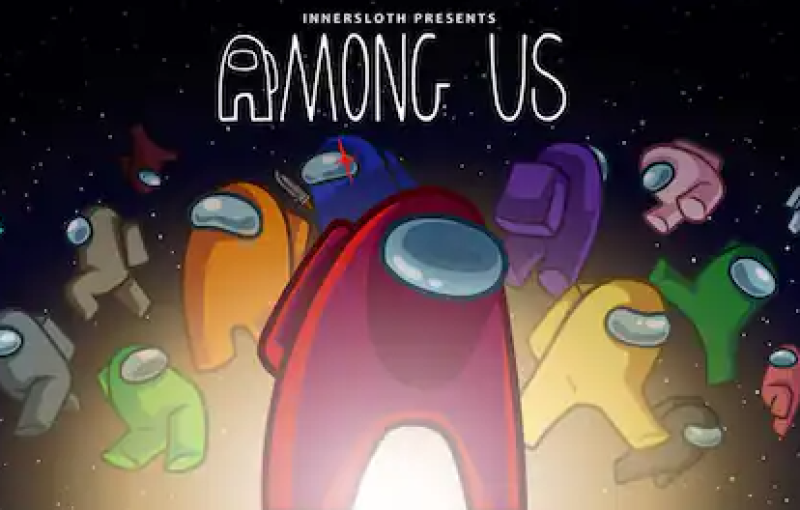
How Twitch is Shaping the Future of Political Conversations
by Jon Scaccia December 10, 2024Imagine turning into a video game stream and finding a live debate about climate change or a fundraiser for social justice causes. This isn’t a fantasy—it’s Twitch. While Twitch is primarily known as a platform for gaming and entertainment, it’s also a growing hub for political dialogue. Politicians, activists, and everyday users are leveraging the platform’s interactive features to engage audiences in real-time discussions about issues ranging from public health to global politics.
But how did this happen? And why does it matter? Let’s dive into the world of “Twitch politics” to explore who’s talking, what they’re saying, and how this unique medium is reshaping political communication.
What is Twitch, and Why Should We Care?
Twitch, launched in 2011, is one of the world’s largest live-streaming platforms, boasting over 140 million monthly users. While most streams focus on gaming, categories like “Just Chatting” and “Politics” are carving out spaces for discussion beyond entertainment. Twitch’s appeal lies in its interactive format: live chats allow viewers to engage directly with streamers and each other, creating a sense of community and immediacy that traditional media struggles to replicate.
Why should we care? Twitch’s audience skews young, with over 70% of users aged 16–34. This demographic is less likely to consume traditional news but is highly engaged on platforms like Twitch. Understanding how political discourse unfolds here offers insights into how younger generations are shaping and consuming information.
Who are the Political Streamers?
To identify political streamers on Twitch, researchers analyzed profiles and chat data using machine learning. They found 574 political streamers, ranging from well-known commentators like Hasan Piker to lesser-known activists. While some explicitly label their streams as political, others weave politics into broader conversations about culture, gaming, and identity.
Interestingly, the majority of political streamers lean left politically, with topics like social justice, climate change, and equity dominating discussions. However, there’s also a growing presence of conservative and libertarian voices, creating a vibrant and sometimes contentious space for ideological debate.
What Are They Talking About?
Using topic modeling—a method that identifies recurring themes in text—researchers uncovered seven main categories of political discussion on Twitch:
- International Issues: Topics like the Ukraine conflict and global environmental challenges.
- U.S. Politics: Key figures such as Alexandria Ocasio-Cortez and contentious issues like police violence.
- Identity Politics: Gender rights, racial equity, and LGBTQ+ issues.
- Ideological Debates: Left vs. right viewpoints, often marked by humor and satire.
- Public Health and Politics: Pandemic responses and health equity.
- Environmental Issues: Discussions on climate change and sustainability.
- General Politics: Broad topics that cut across categories.
One unique feature of Twitch is its use of “emotes”—customized emojis that often carry political meaning. For example, the “Kkapitalist” emote, which satirizes capitalism, frequently appears in discussions critiquing economic systems.
How Does Interaction Work?
Unlike traditional media, where audiences passively consume content, Twitch thrives on active participation. During political streams, viewers use live chats to ask questions, share opinions, and even challenge streamers. This creates a feedback loop where the audience directly influences the direction of the conversation.
Researchers analyzed these interactions by building “reference networks,” which map out how users mention and respond to each other. They found that a small number of highly active users—often moderators or community leaders—dominate these networks, shaping the flow of discussion.
Interestingly, most Twitch chat networks follow a “power-law distribution,” meaning a few users contribute disproportionately while the majority remain relatively quiet. This pattern mirrors other social media platforms but takes on a more dynamic quality in Twitch’s real-time environment.
Why Twitch Matters for Political Communication
So, what makes Twitch unique in the political landscape?
- Real-Time Engagement: The live nature of Twitch fosters immediacy and authenticity, making political discussions feel more personal and impactful.
- Community Building: The platform’s interactive features allow users to form tight-knit communities around shared political values.
- Youth Engagement: Twitch reaches younger audiences who are often disconnected from traditional political channels.
- New Forms of Expression: Emotes, memes, and streaming culture offer novel ways to communicate complex ideas.
Twitch also democratizes political communication. Unlike traditional media, where gatekeepers control access, anyone with a webcam and internet connection can become a political streamer. This lowers barriers to entry, allowing diverse voices to participate in the conversation.
The Challenges Ahead
While Twitch offers exciting possibilities for political engagement, it’s not without challenges:
- Echo Chambers: Like other social media, Twitch can reinforce ideological bubbles, limiting exposure to diverse perspectives.
- Harassment: Political streamers, especially women and minorities, often face harassment, which can stifle participation.
- Data Limitations: Incidental exposure to political content—when viewers encounter politics in non-political streams—remains understudied but crucial for understanding Twitch’s broader impact.
Let’s Explore Together
Twitch is transforming how we think about political communication, blending entertainment with activism in ways that traditional media can’t. But this is just the beginning. What role will Twitch play in future elections? How can it foster more inclusive discussions?
We’d love to hear your thoughts:
- Have you ever engaged with political content on Twitch? What was your experience?
- Do you think platforms like Twitch can bridge political divides, or will they deepen existing ones?
- What other spaces should we explore to understand how younger generations consume political information?
Share your ideas in the comments or join the conversation on social media!
By shedding light on Twitch’s role in political discourse, we gain a glimpse into the future of communication—a future shaped by technology, community, and a new generation of voices. Let’s keep exploring!
Explore and Learn with Science
Dive into groundbreaking research and inspiring stories with ‘This Week in Science’! Perfect for teachers and science enthusiasts, our free weekly newsletter expands your horizons in teaching and learning. Join us today and reshape your engagement with science. If you liked this blog, please share it! Your referrals help This Week in Science reach new readers.
Leave a Reply